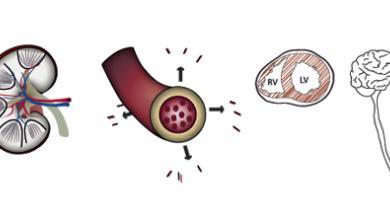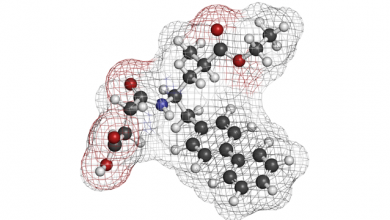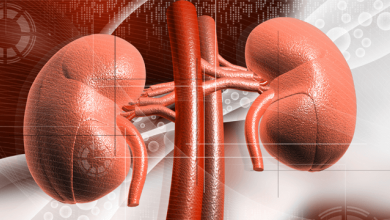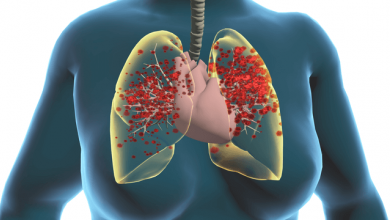Search results
Author(s):
Sam Hayman
,
John J Atherton
Added:
3 years ago
Heart failure (HF) is associated with significant morbidity and mortality and confers a major economic burden.1 Large randomised controlled trials (RCTs) have demonstrated that inhibition of the renin–angiotensin– aldosterone and sympathetic nervous systems improve outcomes in patients with HF and a reduced left ventricular ejection fraction (HFrEF) (see Figure 1),2–9 with clinical guidelines…
View more
Author(s):
Juan Tamargo
Added:
3 years ago
Chronic heart failure (HF) is a complex and progressive clinical syndrome resulting from any abnormality of cardiac structure or function. The American College of Cardiology Foundation/American Heart Association guideline defines HF as ‘a complex clinical syndrome that results from any structural or functional impairment of ventricular filling or ejection of blood’.1 The European Society of…
View more
Author(s):
David Morrow
Added:
4 years ago
In this video, Prof David A Morrow, Professor of Medicine and Cardiology from the Harvard Medical School, Boston, MA, US, discusses the emerging data on utilising Angiotensin Receptor-Neprilysin Inhibitor (ARNI) therapy in complex patients.
Filmed on site at ESC 2019 by Radcliffe Cardiology.
This interview is a component of a wider Radcliffe Education programme entitled,'Review of emerging…
View more
Author(s):
Noel S Lee
,
Lori B Daniels
Added:
3 years ago
Today, natriuretic peptides are ubiquitously utilized for the diagnosis, treatment, and prognostication of heart failure in the Emergency Department, as well as inpatient and outpatient settings alike.1–5 These endogenous hormones counteract some of the most detrimental effects of heart failure. Given their clinical and physiological importance, the fact that a manuscript describing the…
View more
Author(s):
Davide Stolfo
,
Gianluigi Savarese
Added:
5 years ago
Heart failure (HF) is a major and growing public health problem with high morbidity, mortality and costs.1 Due to the ageing the population, the mean age of patients with HF is increasing and exceeds 70 years in most developed countries. HF prevalence rises with age and exceeds 10% in people over 80.2 Older patients are more frail and have a higher risk of cardiovascular events. They also have a…
View more
Author(s):
Mauro Gori
,
James L Januzzi
,
Emilia D’Elia
,
et al
Added:
3 years ago
Author(s):
Giuseppe Rosano
,
Ilaria Spoletini
,
Cristiana Vitale
,
et al
Added:
3 years ago
Heart failure (HF) affects 1–2% of the population in developed countries and absorbs a significant amount of human and economic resources.1,2 HF is a complex syndrome characterised by a spectrum of symptoms and phenotypes: HF with preserved ejection fraction, HF with mid-range ejection fraction and HF with reduced ejection fraction (HFrEF).3 Differentiating patients according to left ventricular…
View more
Author(s):
Thomas G von Lueder
,
Dipak Kotecha
,
Dan Atar
,
et al
Added:
3 years ago
Heart Failure (HF) constitutes a major global health problem, evidenced by substantial morbidity and mortality, requiring enormous healthcare-related expenditure. HF is associated with high symptomatic burden, and with a relentless and progressive clinical course towards end-stage disease. A large body of epidemiological data suggests that the prognosis in HF is as poor as in advanced cancer.1…
View more
Neprilysin as a Biomarker
Author(s):
Noemi Pavo
,
Suriya Prausmüller
,
Philipp E Bartko
,
et al
Added:
3 years ago
Article
Author(s):
Aniket S Rali
,
Sagar Ranka
,
Zubair Shah
,
et al
Added:
3 years ago
Coronavirus disease 2019 (COVID-19) has evolved into a global pandemic, having affected more than 2.3 million people and claiming more than 160,000 lives. Infection with the severe acute respiratory syndrome coronavirus 2 (SARS-CoV-2) virus predominantly causes fever (77–98% of cases), fatigue (52–75%) and cough (60–81%).1,2 While it primarily affects the respiratory system, it also appears to…
View more
















